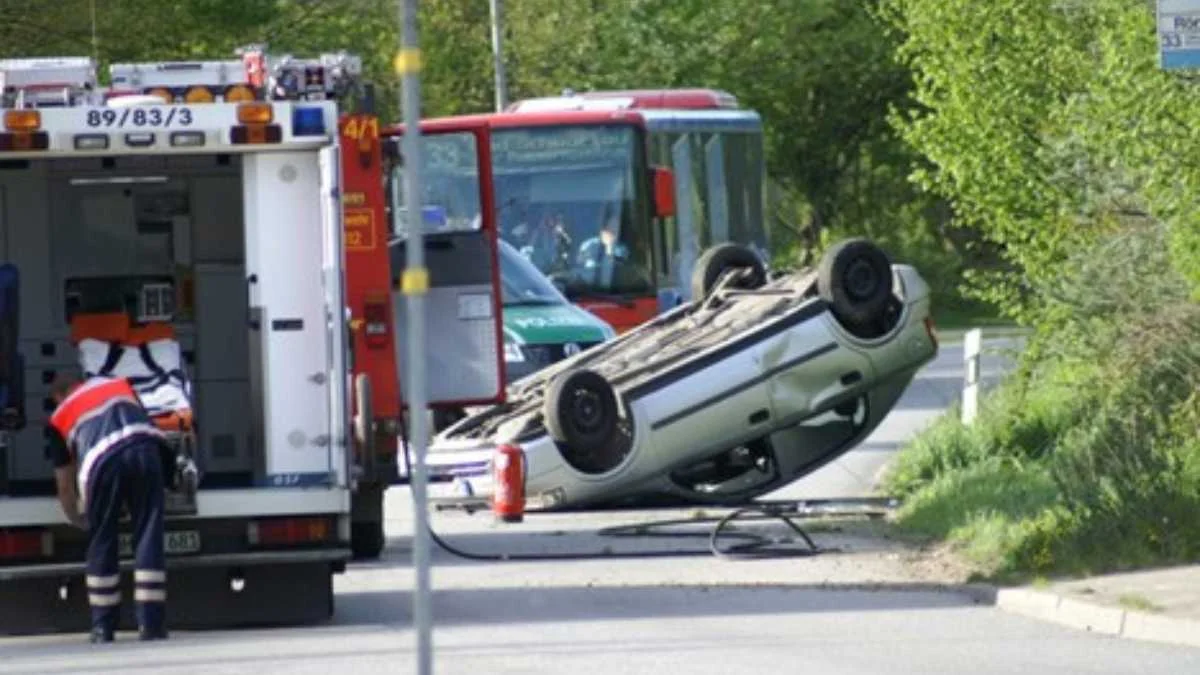LAW
5 Steps to Take Immediately After an Accident

Introduction
You’ve probably heard a few people talk about the importance of acting fast after a car accident. Well, none of it is just about being responsible. The sad truth is, insurance companies often try to avoid paying full compensation. They’ll look for any excuse to say the accident wasn’t serious, or that it was your fault, or that you didn’t follow the right steps afterward.
That’s why documenting everything, reporting everything, and consulting a doctor are all so important. They give you the facts, records, and proof you need to back up your side of the story.
And if things get complicated, or someone tries to shift the blame, or perhaps you need guidance on filing a personal injury lawsuit, you should talk to someone who knows how these cases work. A personal injury attorney can help you understand your options and make sure you’re not getting pushed around by insurance companies.
Nonetheless, here are five steps you need to take immediately after an accident:
Step 1: Make Sure You’re Safe and Check for Injuries
First things first, check if you’re okay. If your car is in a dangerous spot, such as the middle of the road, and it is still drivable, carefully move it to the side. If it won’t move, turn on your hazard lights and stay inside unless it’s unsafe to do so.
Now check yourself. Perform a quick scan to check if you’re experiencing bleeding, dizziness, or pain. Adrenaline can make injuries feel invisible at first, so don’t ignore any weird feelings, even small ones. If you feel off, take it seriously.
Next, check on anyone else involved, including passengers, the other driver, or any pedestrians. If someone is hurt or there’s significant damage, call emergency services immediately.
It doesn’t matter if it feels awkward. Paramedics and police need to be there for a reason. They’ll take care of injuries, direct traffic, and create an official report that you may need later.
Step 2: Document the Scene
Once everyone is safe and help is on the way or already there, it’s time to gather evidence. You don’t need to be a lawyer or detective. You just need to be thorough.
Take out your phone and start recording everything. Photos, videos—whatever captures the whole picture. Show the damage on all vehicles, where the cars ended up, any skid marks or broken glass, traffic signs, nearby intersections—anything that helps explain what happened. Don’t forget to snap photos of injuries, even if they seem minor.
If there are witnesses, ask if they’re willing to provide their name and phone number. Most people are eager to help if you ask respectfully.
Step 3: Exchange Info
Now it’s time to talk to the other driver, but only to exchange information, not opinions. Get their full name, phone number, driver’s license number, insurance company name, and policy number; also, be sure to note the make, model, and license plate of their car. Share your info with them too, but just the basics.
This is important: don’t apologize, and don’t blame anyone, including yourself. If police are on the scene, they’ll also help collect this info. Still, it’s smart to have your record just in case something goes missing later.
Step 4: Report the Accident Right Away
Once things have calmed down and you’ve left the scene, don’t just go home and hope it’s over. You still need to report the accident officially.
First, if the police didn’t come to the scene, go to the nearest station and file a report yourself. This provides you with an official document that shows what happened, which is particularly important if a dispute arises later.
Next, call your insurance company. Do this as soon as possible, even if the crash seems minor. They’ll walk you through what to do next. Just as with the police, provide them with the facts. Don’t guess or make assumptions about what caused the crash.
Step 5: See a Doctor Even If You Feel Fine
Maybe you feel okay afterward. That’s good, but it’s still a good idea to see a doctor anyway. Medical records help prove that your injuries came from the accident. If you wait too long, insurance companies might say your injuries aren’t related. That makes it way more challenging to get help paying for treatment.
If your doctor tells you to return, do so. If they give you meds or a treatment plan, follow it. Not only is it good for your health, but it also shows that you’re serious about your recovery, which matters if you ever need to take legal action.
-

 BIOGRAPHY9 months ago
BIOGRAPHY9 months agoBehind the Scenes with Sandra Orlow: An Exclusive Interview
-

 HOME1 year ago
HOME1 year agoDiscovering Insights: A Deep Dive into the //vital-mag.net blog
-

 HOME1 year ago
HOME1 year agoSifangds in Action: Real-Life Applications and Success Stories
-

 BIOGRAPHY1 year ago
BIOGRAPHY1 year agoThe Woman Behind the Comedian: Meet Andrew Santino Wife




























